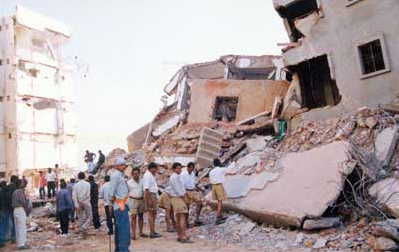21 yrs after earthquake, Bhuj seeks industrialisation without disturbing ecological structure
By Lokmat English Desk | Published: November 27, 2022 11:22 AM2022-11-27T11:22:41+5:302022-11-27T11:23:15+5:30
Two decades after a devastating earthquake struck Bhuj in Gujarat, the Kutch district might have witnessed unprecedented industrial growth, ...

21 yrs after earthquake, Bhuj seeks industrialisation without disturbing ecological structure
Two decades after a devastating earthquake struck Bhuj in Gujarat, the Kutch district might have witnessed unprecedented industrial growth, but environmentalists and town veterans are apprehensive about whether Bhuj has learnt its lessons and prepared to face such a natural disaster.In January 2001, a massive earthquake struck the town of Bhuj and Kutch district, killing more than 20,000 people, destroying thousands of homes, and rendering lakhs of people homeless.Post-earthquake, the Gujarat government announced a major reconstruction and rehabilitation policy, under which the district witnessed unprecedented industrial growth in the last two decades.Scientists and environmentalists feel that with Kutch being one of the active seismic zones of the country, the administration should be extra careful while carrying out developmental activities such as industrialisation and town planning.
As the election approaches, the earthquake survivors and the scientists urge political parties to take note of warning signs before it's too late.The Bhuj assembly constituency will go to poll on December 1, the first phase of the Gujarat elections.Professor M G Thakkar, the head of the Earth and Environmental Science department at KSKV Kachchh University, said Kutch has several "active fault lines", with one passing through the Bhuj town itself."There are several research papers where we have pointed out these fault lines. After 2010, the ministry of sciences allotted us various projects to map those fault lines. But the thing is, we are not considering this scientific outcome during town planning," Thakkar told PTI.He wondered whether, even after two decades, the district is well prepared to face a disaster of the 2001 Bhuj earthquake magnitude in future."Are we prepared to face such a natural disaster? The answer is no. Even after two decades, we are still not prepared.
The disaster management is still not strong if anything of this magnitude hits us again. We have to keep the masses prepared for any eventuality," Thakkar, a Bhuj earthquake survivor, said.He opined that development projects must be approved after consulting the detailed research work regarding earthquake fault lines in the area.Kutch district collector Dilip Rana said town planning and industrialisation are being carried out keeping in mind ecological balance and the area being quake-prone."All necessary measures are in place, and everything is done as per norms and if anybody with issue come to us," the collector said.Echoing Thakkar, Bharat Patel, the president of the Kutch Fishermen Association, said rapid industrialization in port areas of the district has led to a massive impact on the area's marine ecology."Development and industrialisation are good for all of us. But it should be in a planned way. So that other are not affected. Industrialization along the coastline is having an impact on marine ecology. The amount of fish we used to get is also slowly decreasing in our district," he said.Adam Chaki, a social worker who had done relief work during the Bhuj earthquake, said the administration should be more proactive in sensitizing the masses about protecting themselves and surviving during a quake."Most households don't have an earthquake kit in their homes. The earthquake has brought unprecedented development, but we need to prepare for any natural disaster in future," he said.The Bhuj constituency, which has around 2.80 lakh voters, has one of the highest minority populations of the district, which constitutes roughly 15 per cent of the electorate.It has been a traditional Congress seat since the late sixties; however, riding on the Ram Mandir movement wave, the BJP wrested the seat from Congress in 1990.However, post-2002 Godhra riots, the seat with a considerable minority population, the BJP lost it to Congress, only to reclaim it in 2007. Since then, it has been considered a saffron citadel.
Open in app